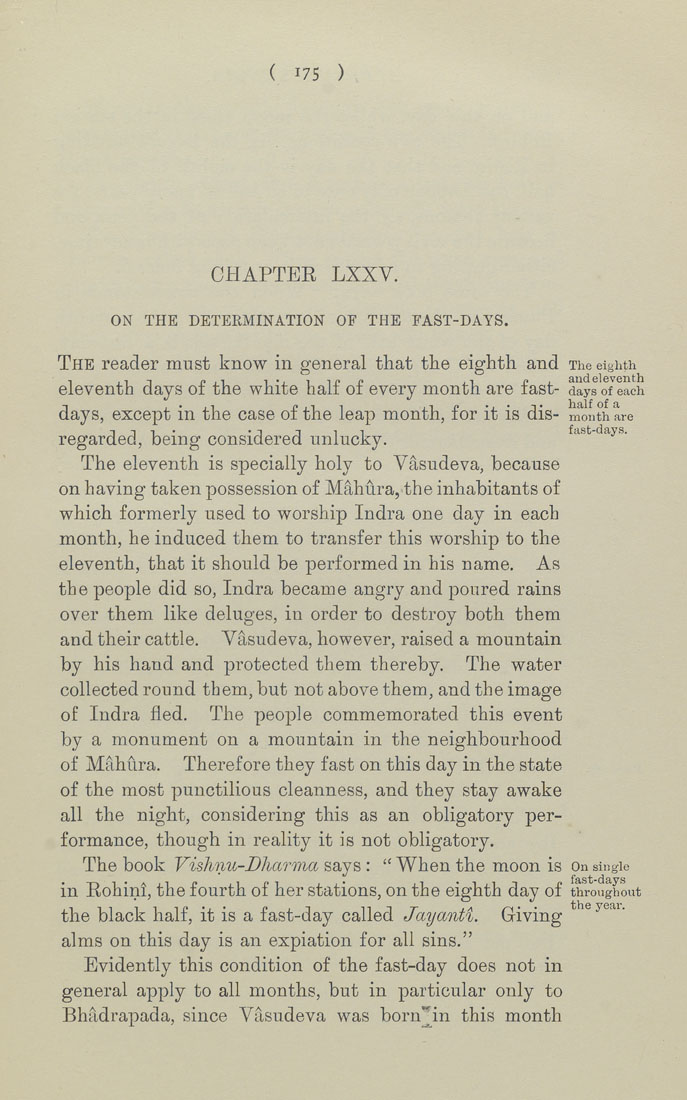( 175 )
CHAPTER LXXV.
ON THE determination OF THE FAST-DAYS.
The reader must know in general that the eighth and The eighth
eleventh days of the white half of every month are fast- days of each
days, except in the case of the leap month, for it is dis- month are
regarded, being considered unlucky. '^"^' ^^^'
The eleventh is specially holy to Vasudeva, because
on having taken possession of Mahura, the inhabitants of
which formerly used to worship Indra one day in each
month, he induced them to transfer this worship to the
eleventh, that it should be performed in his name. As
the people did so, Indra became angry and poured rains
over them like deluges, in order to destroy both them
and their cattle. Vasudeva, however, raised a mountain
by his hand and protected them thereby. The water
collected round them, but not above them, and the image
of Indra fled. The peo^Dle commemorated this event
by a monument on a mountain in the neighbourhood
of Mahura. Therefore they fast on this day in the state
of the most punctilious cleanness, and they stay awake
all the night, considering this as an obligatory per¬
formance, though in reality it is not obligatory.
The book Vishnu-Dhctrmct says : " When the moon is On single
in Rohini, the fourth of her stations, on the eighth day of throughout
the black half, it is a fast-day called Jctyanti. Giving ^ ^^^^'
alms on this day is an expiation for all sins."
Evidently this condition of the fast-day does not in
general apply to all months, but in particular only to
Bhadrapada, since Vasudeva was born'^in this month
|








